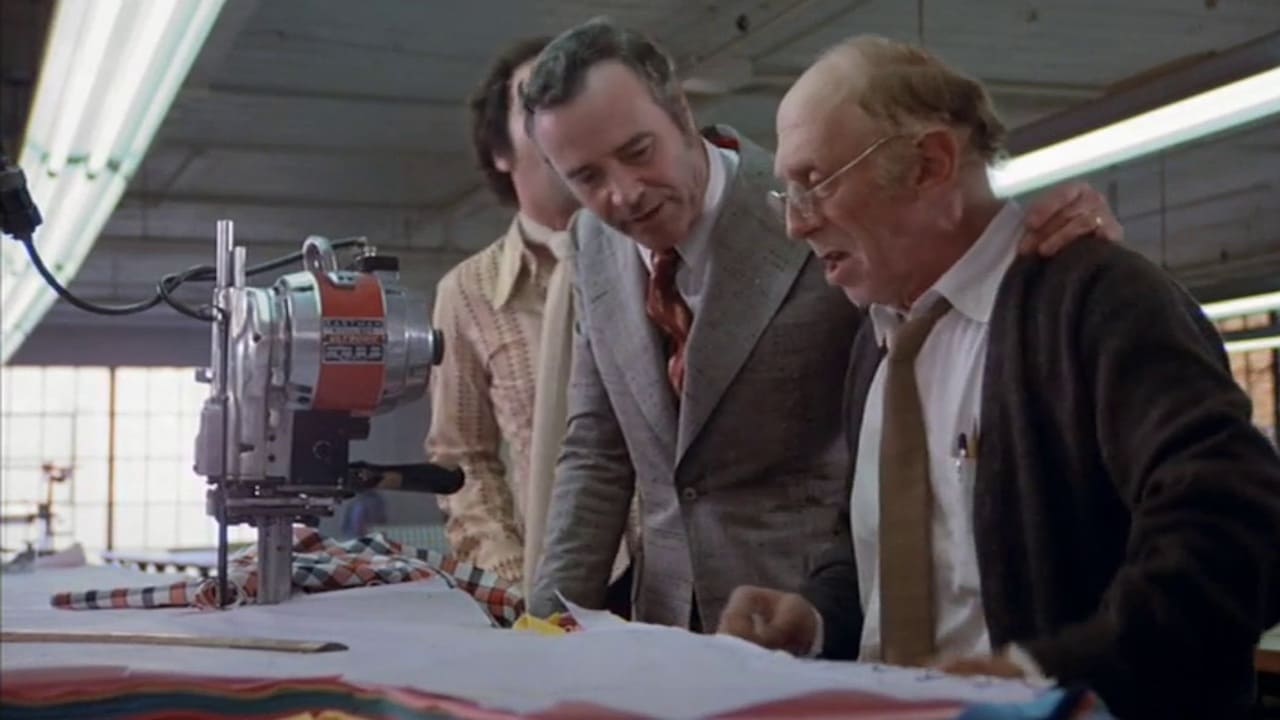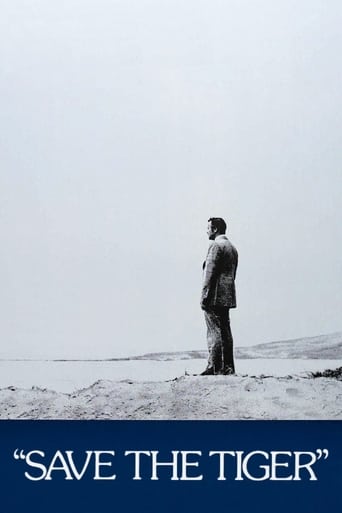

One of the best scripts I've ever seen in a film, trusted into the hands of one of the greatest performances to ever grace the screen. Save The Tiger is a character study with powerful, universal themes and a shattering commentary on the state of the world that explodes off the screen even forty years after it was made. Steve Shagan's script uses Harry Stoner, portrayed by Jack Lemmon, as a way to dissect the world as we follow a little more than a day in his life. Stoner is a standard working man with a wife and daughter and we follow him around for a day in his life, as the weight of financial and cultural burdens pile on him more and he reflects on his youth while interacting with various people, like his co-worker Phil Greene (Jack Gilford) and a hitchhiker he picks up (Laurie Heineman). Each new conversation unfolds another layer of Shagan's social commentary and what starts off as a typical character study becomes a startling criticism of American culture.Save The Tiger is so much more than one would expect from the opening scenes; it makes the audience look in the mirror and witness the death of the American dream, the death of the well-natured man and the death of culture and, ultimately, humanity. There are many different explorations into these themes that Shagan presents, and each one is just as rich as the last. One of my favorites was in the opposing nature of two men who work for Stoner. One is an old and respectful man, who is stuck in his old natured ways but works as hard as he possibly can and is the last person there at the workplace when Harry leaves for the night. The other is a young and energetic man, but with his youth comes arrogance and a lack of respect that drives Harry mad.All of the commentary culminates beautifully in the metaphor of Harry as an endangered tiger; a creature who is on it's last legs and is forced to be captured, locked away and look out on the world he's going to be leaving behind. The final image is, strangely, one of hope, while Harry watches a group of young children play a game of baseball, America's pastime. However it's also one of the heartbreak, as Harry tries to get involved and is told that he's not allowed to play with them. His time is gone, his species is a dying breed.Of course all of the absolute genius in the script wouldn't be worth anything if it weren't for the actor playing Stoner and Jack Lemmon delivers what is truly one of the best performances I've ever seen. He absorbs into this role so fully and captures every ounce of the desolation and loss of humanity that Shagan has built his script around. Lemmon wears his skin like a glove, we fully believe how long he's been living this miserable life (a quality that is even more pointed when he shares the screen with Gilford, who have no trouble getting you to believe they have a long history together) and it looks like every breath he takes hurts him even more. Shagan gives Lemmon magnificent material to work with and what he does with it is...beyond compare.The scene where he melts down on stage was like a sledgehammer to my soul, and when contrasted with the bittersweet quality of the final moments, it's a remarkable range of emotions that Lemmon is able to take us through. Then there's the scene with him at the beach, which brought a wrenching pain to me that is impossible to even capture in words. There's a tear in his eye in almost every scene, but he never lets it fall down his cheek, a perfect representation of this character's refusal to fully give up despite how much the walls are closing in on him. He's a good man in a cruel world and he's gotten to a point where he has to do some rough things to keep surviving, but he won't go down without a fight.
... View More"Save the Tiger", my all-time favorite film (followed closely by "Network") tells the life of Harry Stoner (Jack Lemmon in an Oscar-winning performance) during one day in Los Angeles, where he contemplates burning down his warehouse for the insurance money due to his "ballet with the books". As he contemplates arson, he regresses to his past and wishes for a simple and more easy time. Jack Gilfrod (also Oscar nominated and also deserving) offers strong support as Harry's partner. All in all, a touching and very emotional movie, unprecedent by any film since or before. Also Oscar nomianted for Steve Shagan's script. Better than director John G. Avildsen's follow up "Rocky" (the movie that "Network" should have won over).
... View MoreI don't know where to begin, except to say that Jack Lemmon was one of our finest actors and is one of my personal favorites. Many can find fault with this film, but a great performance can make any ordinary film extraordinary. Each time I see it, I want to see it again. Its depiction of a man, in the supposed prime of his life, who's thoroughly unhappy with it, is unflinchingly raw and real. Its somber and bleak tone may turn off some viewers, expecting one of Lemmon's usual comedies. But, I am just in awe. Once the viewer sees him lying on the floor, saying he just wants to feel...something, they are not likely to forget it. One gets the feeling that he won the Oscar, not only because he was outstanding, but because he was willing to subject himself to a nervous breakdown just for a role. Lemmon said he did have one, in the making of this movie. He so deserved the Oscar. Save the Tiger's bitterest irony is that we have causes, funds, and drives for animals becoming extinct, but what do we do mankind? We may do more now, in the 2000s, than we did in the 70s, which is why people were ashamed of their problems then and didn't know where to turn. Finally, the ending is up to the viewer. Does Harry Stoner have a revelation, after being rejected by the boys playing? Does he feel like he's becoming extinct? Does he see himself forever living in the past? Does he feel only the futility of his life? Or, does he feel he can do something positive? What happens next to Harry Stoner is not shown, because it is up to you... because you are Harry Stoner.
... View MoreCaught this last night on TCM and was very taken by Jack Lemmon's deserved Oscar-winning performance. The movie itself is about a middle-aged man whose business is dying and who is becoming desperate; he thinks about resorting to arson, provides hookers to some of his clients, and is tormented by memories of the war from 30 years past. Jack Gilford plays his pure-hearted business partner of many years who tries to resist his warped ideas. Thayer David is very good also in a smaller part as a criminal Lemmon approaches to settle his problems. The movie is pretty basic and simple, and the ending left me a little unsatisfied this first time around, but the performances make it captivating. It's another of these movies I relate to in the sense of getting older myself these days and wondering what happened. *** out of ****
... View More